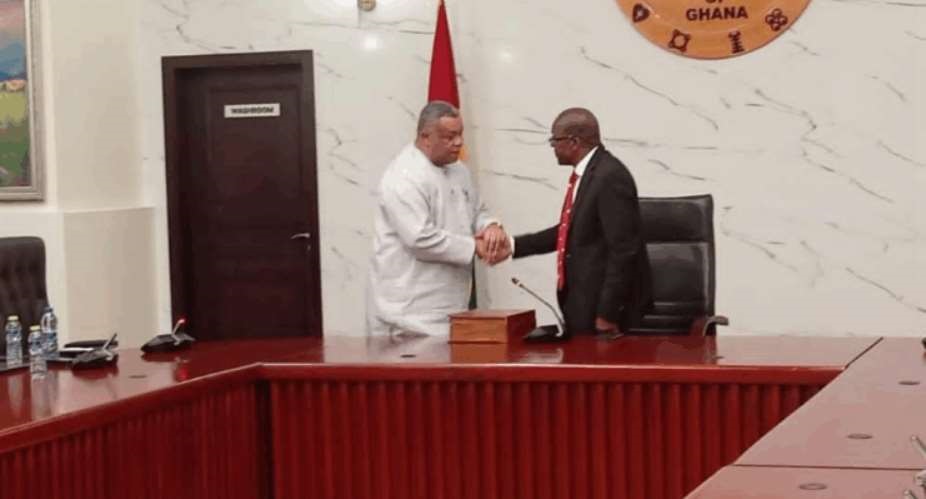The Government of Ghana has announced that the long-awaited 24-hour economy initiative will officially launch on Wednesday, July 2, 2025. The announcement was made by Goosie Tanoh, Presidential Advisor on the policy, during the formal presentation of the final policy document to Speaker of Parliament Alban Bagbin on Thursday, June 26.
The initiative—one of the flagship promises of the National Democratic Congress (NDC) during the 2024 elections—is designed to combat unemployment, increase productivity, and enable continuous, round-the-clock economic activity across various sectors.
According to Tanoh, the 24-hour economy is anchored on three foundational pillars:
- Transforming production
- Improving supply chain and market systems
- Enhancing human capital
“These foundational anchors are supported by eight strategic sub-programmes,” Tanoh noted during the presentation.
The policy includes eight targeted programmes to drive sector-specific growth. Among the most notable are:
- Grow24 – Focused on modernising agriculture and improving food security
- Make24 – Aims to scale up industrial and manufacturing capacity
- Connect24 – Enhances supply chain and logistics efficiency
- Aspire24 – Seeks to foster a productivity-driven national mindset and culture
A major component of the programme is the integration of digital skills training into the TVET (Technical and Vocational Education and Training) curriculum, preparing the youth for high-demand jobs in Ghana’s evolving economy.
In addition to core economic reforms, the policy also introduces ‘Show Ghana’, an initiative aimed at promoting Ghana’s rich cultural heritage to stimulate tourism and generate foreign revenue.
While welcoming the initiative, Speaker Alban Bagbin encouraged the government to seek legislative backing to ensure the sustainability of the policy across different administrations. He called on the newly created 24-Hour Economy Secretariat to work with Parliament to draft and pass a bill that would institutionalize the programme.
“The only way to ensure longevity is through law. I urge the government to legislate this policy to make it binding and future-proof,” Bagbin advised.
The July 2 launch marks a significant milestone in Ghana’s journey toward economic transformation. The government believes the policy has the potential to revolutionize the labor market, drive innovation, and make Ghana’s economy more competitive on the global stage.

